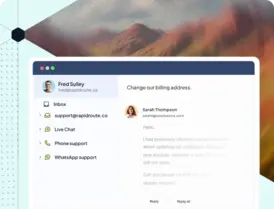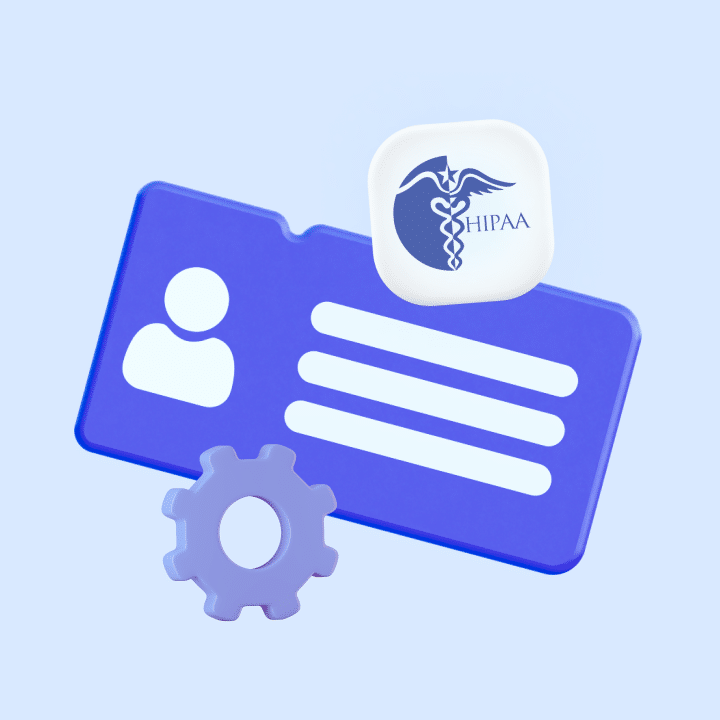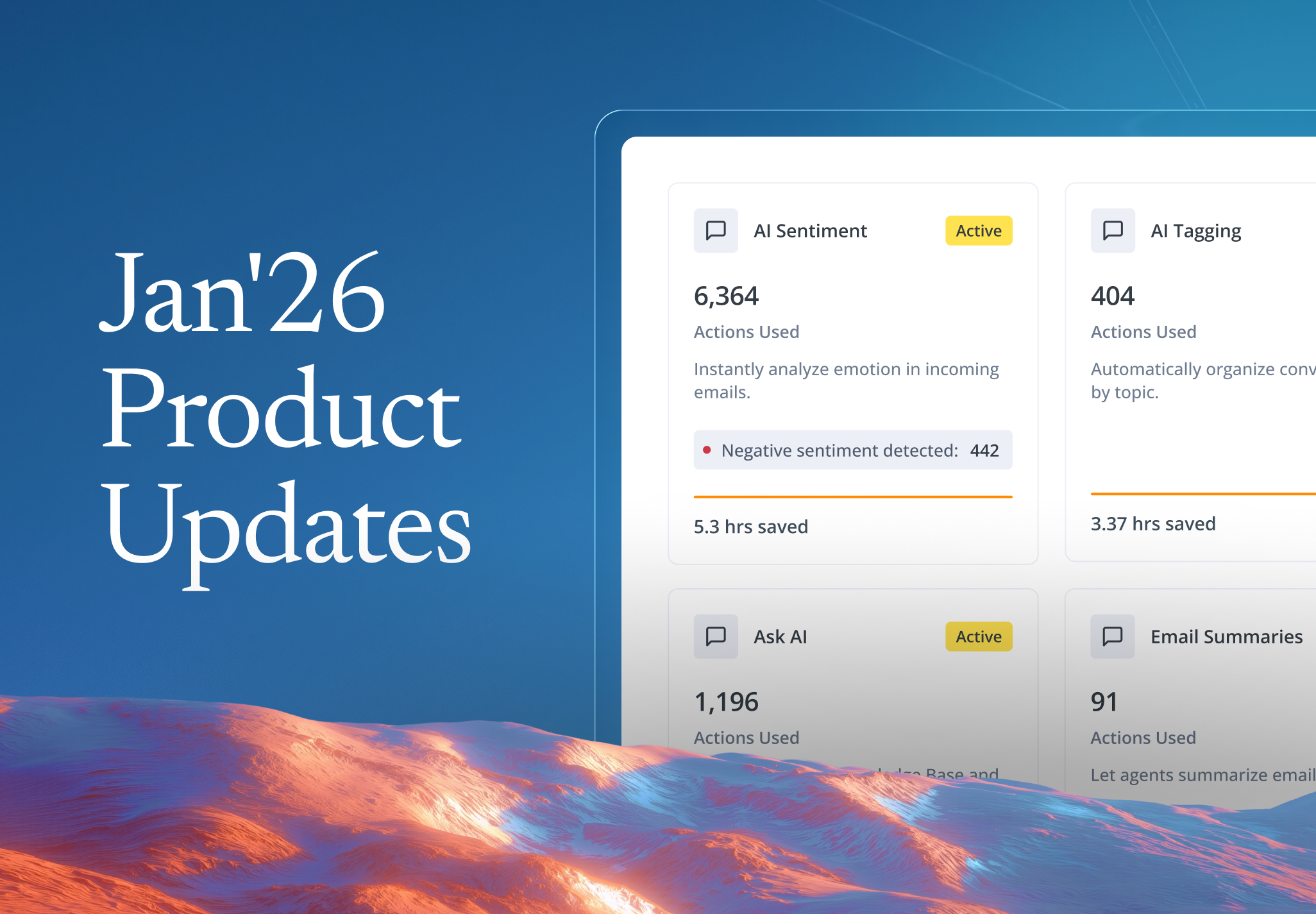If I had a penny for every time I tried to unsubscribe from emails to clear my inbox, I’d probably be a millionaire. I’m not even kidding. Most of the emails are not even relevant. Just look at my inbox.

But I recently realised that I’m frustrated because my approach is wrong. I would go into each email I didn’t want and unsubscribe from it.
Too time consuming, right?!
But then I found an easier and more effective way to do this. A way that allows you to unsubscribe from emails in bulk. Let’s see how this is possible.
[cta_block]
Table of Contents
- Methods to Unsubscribe from Emails in Bulk
- 2. Using Built-in Unsubscribe Features
- 3. Manual Unsubscribing Techniques
Methods to Unsubscribe from Emails in Bulk
There are three main ways to unsubscribe from emails in bulk. You can manually unsubscribe, use built-in features, or leverage leverage third-party tools. Let’s explore each method below:-
1. Utilizing Email Management tools to manage your inbox better
The fastest way to clean your inbox is to use third-party tools like Unroll.Me or Leave Me Alone. They give you the ability to unsubscribe from emails in bulk. Let’s see how they work:
Unroll. me
Unroll.Me is a free email management tool designed to help you organize your inbox. It helps you unsubscribe from unwanted emails and consolidate the ones you want into a daily digest called the “Rollup.”

Unroll.Me scans your inbox for subscription emails and presents them in a user-friendly dashboard where you can manage them in bulk. Here are some benefits of using Unroll.Me:
- Saves time: Unsubscribing from emails in bulk is quick and effortless.
- Declutters your inbox: Keeps irrelevant emails away from your main inbox
- Customizable: You decide which emails stay and which ones are removed.
Easy to use: The interface is simple and intuitive.
Steps to use ‘Unroll.Me’ to unsubscribe from emails in bulk:
1. Sign Up for Unroll.Me
– Log in using your email account (supports Gmail, Yahoo, Outlook, and others).
2. Let the tool scan Your Inbox
– Once logged in, Unroll.Me scans your inbox for subscription-based emails.
– This may take a few minutes, depending on the number of subscriptions.
3. Review Your Subscriptions
– After scanning, Unroll.Me will display a list of all the subscriptions it has found.
– For each subscription, you can choose one of the following options:
Unsubscribe: Stop receiving emails from this sender.
Roll Up: Add it to the daily digest.
Keep in Inbox: Continue receiving emails as usual.
4. Manage Your Rollup
– The Rollup compiles emails into a visually appealing daily or weekly digest.
– You can manage the timing and format of the Rollup in your settings.
5. Access and Make Changes
– Log in anytime to add or remove subscriptions from your Rollup or to unsubscribe from new emails.
LeaveMeAlone
Leave Me Alone is another powerful tool for decluttering your inbox by unsubscribing from unwanted emails in bulk.

The tool is known for its transparency, privacy-focused approach, and support for multiple email services – Gmail, Outlook, Yahoo, ProtonMail, and custom IMAP accounts.
Benefits of using ‘Leave Me Alone’:
- Privacy-First Approach: Leave Me Alone does not store or sell your email data. Your credentials and email access are secure.
- Bulk Unsubscribe: Effortlessly unsubscribe from dozens of senders in one go.
- Clean and Intuitive Interface: The dashboard is user-friendly and provides detailed insights into your subscriptions.
- Supports Multiple Accounts: Manage subscriptions from different email providers in one place.
- Pay-As-You-Go: Instead of subscriptions, you pay based on the number of senders unsubscribed, ensuring cost-effectiveness.
Steps to use ‘Leave Me Alone’ to unsubscribe from emails in bulk
1. Sign Up for Leave Me Alone: Visit Leave Me Alone and create an account. Connect your email account using secure OAuth (for Gmail and Outlook) or custom IMAP credentials.
2. Scan Your Inbox: Once connected, Leave Me Alone scans your inbox for subscription and promotional emails.
– It organizes the results into a list of senders, ranked by the number of emails they send.
3. Review Your Subscriptions: After scanning, you’ll see a dashboard listing all your subscriptions with details such as:
-Sender name
– Frequency of emails
– Date of the last email received
You can click on any sender to preview the type of emails you’ve been receiving.
4. Unsubscribe in Bulk: Select the subscriptions you no longer want and click ‘Unsubscribe.’ Leave Me Alone handles the unsubscription process by sending requests on your behalf or through automated filters. You can unsubscribe from multiple senders simultaneously.
5. Mark Keepers: Mark subscriptions you want to keep as ‘Favorites’ to ensure those emails stay in your inbox.
Hiver
While Hiver does not offer features to unsubscribe from emails, it helps you reduce clutter in your shared inbox (support@yourcompanyname.com and sales@yourcompanyname.com). Those invoice confirmation emails and promotional newsletters that you receive can be auto-closed using Hiver. All you have to do is setup an automation for this.
For example, if your business often receives emails with “Out of Office” auto-replies after sending newsletters or promotional campaigns, you can set up an automation rule in Hiver to auto-close these emails.
Custom Labels and Tags
Create custom email labels and tags, making it easier to identify and prioritize messages at a glance. By tagging emails based on projects, urgency, or department, you can quickly locate essential communications without sifting through irrelevant messages. This strategy helps maintain clarity in your inbox.

Auto-closes unimportant messages
If you work in customer-facing teams, Hiver can be especially helpful. It intelligently identifies and automatically closes conversations that are not actionable. For example, it allows you to mark auto-generated emails (like emails with the subject line ‘do not reply’) as ‘closed.’ By closing these threads, you can focus on emails that require attention, reducing unnecessary clutter.

2. Using Built-in Unsubscribe Features
Popular email providers like Gmail and Outlook also have user-friendly features to help you manage your email subscriptions and reduce unwanted emails. Let’s discuss them below:-
Gmail’s Unsubscribe Features
Gmail provides several methods for users to unsubscribe from unwanted emails:
- Unsubscribe Button for ‘Promotional’ Emails: Gmail displays an “Unsubscribe” button next to the sender’s address at the top of promotional emails. You can click this button to unsubscribe from emails without opening the email or visiting the sender’s website.

- Automated unsubscribe suggestions: If you last opened promotional emails over 30 days ago, Gmail may automatically suggest unsubscribing from those senders. This feature helps quickly identify and remove subscriptions you no longer engage with.
Recommended Reading: How to Organize Your Gmail Inbox in 15 Minutes: [17 Tips + Examples]
Outlook’s Unsubscribe Features
Outlook also offers effective tools for managing email subscriptions:
Unsubscribe links in ‘Promotional’ emails: Similar to Gmail, Outlook displays unsubscribe links at the top or bottom of promotional emails. You can click the link to opt out of future communications.

3. Manual Unsubscribing Techniques
While built-in unsubscribe options are convenient, there are also effective manual techniques you can try out. For example, using built-in email filters.
Use Gmail filters to identify and group unwanted emails before unsubscribing:
- Create Filters: Most email providers allow users to create filters based on specific criteria such as sender address, subject line, or keywords.
- Access Filter Settings: Go to Settings > Filters and Blocked Addresses > Create a new filter.

3. Set Filter Criteria: Define the criteria for the filter. For example, you can filter all emails from a specific domain (e.g., @promotions.com) or containing certain keywords (e.g., “sale” or “offer”).

4. Choose Actions: Decide what action to take with filtered emails—options include marking them as read, applying a label (in Gmail), moving them to a specific folder, or deleting them.

5. Review Filtered Emails: Once your filters are set up, periodically check the folder where filtered emails are directed. This allows you to see all unwanted emails in one place.
6. Unsubscribe in Bulk: You can quickly go through the emails and manually unsubscribe from this grouped view.
Recommended Reading: How To Create Rules In Gmail – Hiver
Use Outlook filters to identify and group unwanted emails before unsubscribing:
You can also easily spot unwanted subscriptions and unsubscribe from them in bulk using Outlook filters.
Step 1: Access Settings
Once logged in, click on the gear icon (⚙️) in the top right corner of the page to open the settings menu. Here, scroll down and select ‘View all Outlook settings’.

Step 2: Go to Subscriptions
Then, navigate to Mail and click on Subscriptions. You will see a list of all your current email subscriptions. This section shows which newsletters and promotional emails you are currently receiving.

Step 3: Unsubscribe from Emails
There will be an ‘Unsubscribe’ button next to each subscription. Click this button to remove any subscription from your inbox. A confirmation window will pop up, asking you to confirm your choice. Click ‘OK’ to finalize.
Recommended Reading: How to Set Up Microsoft Outlook Filters
Look for unsubscribe links at the bottom of each email.
Lastly, a simple but more time-consuming method is to manually click the ‘unsubscribe’ link in each email in your inbox—something I used to do before discovering email management tools.
Most legitimate marketing emails will include an unsubscribe link at the bottom of the message. It’s clearly labeled as “Unsubscribe,” “Opt-out,” or something similar.

Best Practices for keeping a clean inbox
Maintaining a clean inbox comes with practice. So here are some tips to help you manage your email subscriptions and keep your inbox clutter-free.
1. Regularly review your subscriptions
You can set a reminder to review your email subscriptions monthly or quarterly. It helps you stay aware of what you’re receiving and allows you to unsubscribe from newsletters or promotional emails that no longer interest you.
- Action: Create a recurring calendar event to review your subscriptions.
- Tip: Use the unsubscribe links in emails to avoid unwanted communications easily.
2. Use Email labels and filters
Setting up filters in Outlook and Gmail can automatically sort or delete unwanted emails, making it easier to manage your inbox. To avoid losing valuable content, maintain a list of essential subscriptions you want to keep.
3. What to do if you can’t Unsubscribe
Sometimes, unsubscribe links may not work, leaving you with unwanted emails. In that case, you can block the sender directly. You can report spam through your email provider.
Pro Tip: You might not notice this but sometimes, a small number of senders might account for a significant percentage of junk emails. This Reddit thread explains how you can get rid of them.

Enjoy a clutter-free inbox by unsubscribing from emails in bulk
Unsubscribing from unwanted emails in bulk clears your inbox and boosts productivity. If you follow the strategies outlined in this post, you can quickly identify and remove the subscriptions that no longer serve you.
Consider leveraging tools like Hiver to simplify email management and clean your shared inbox. Using Hiver, you can automate how emails are handled, making it easier to only respond to relevant emails across your team.
Keep in mind that no matter what approach you take, the end goal is simple: create an focused email environment that allows you to focus on what truly matters.
 Skip to content
Skip to content











